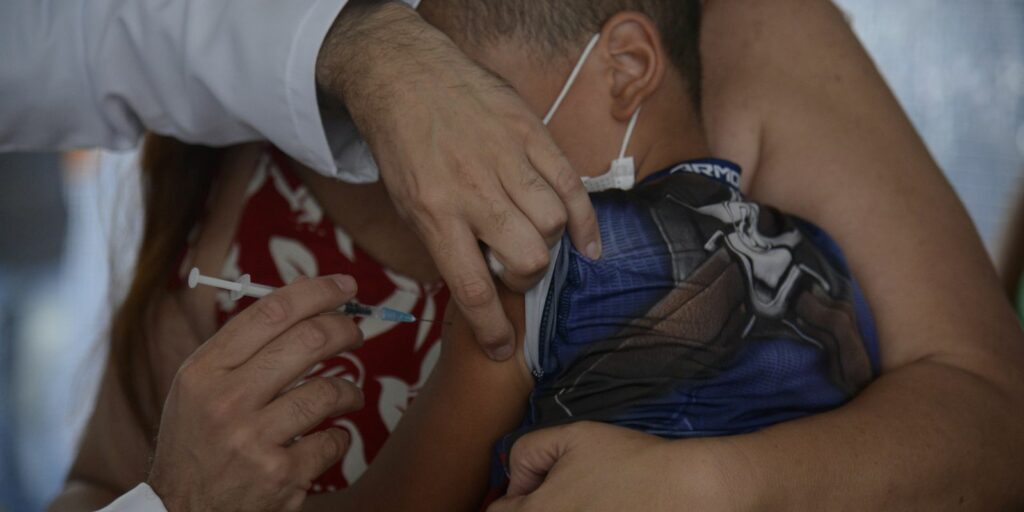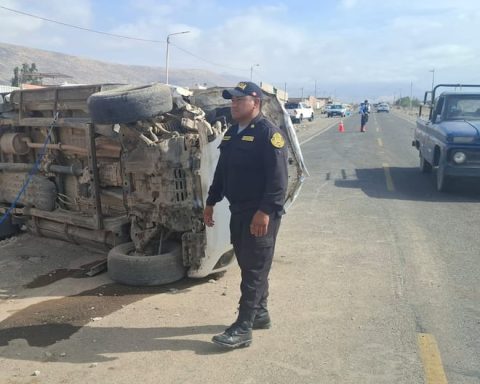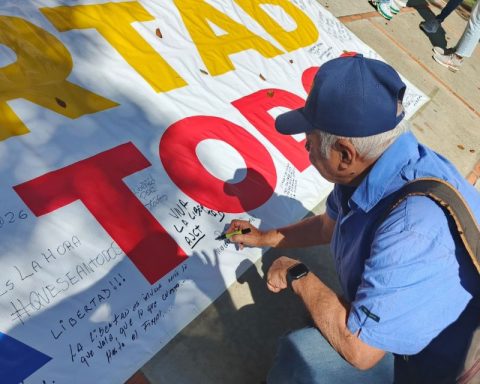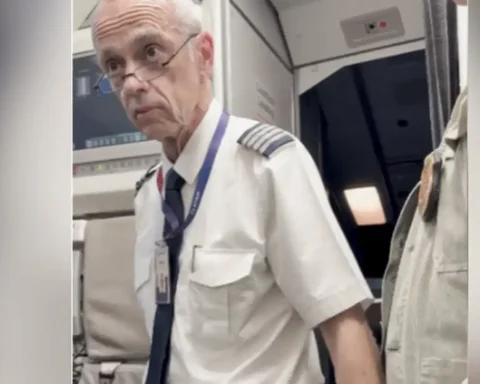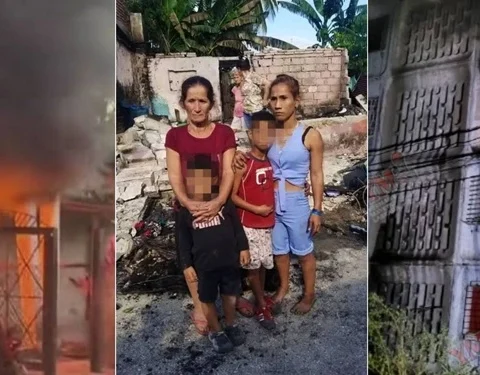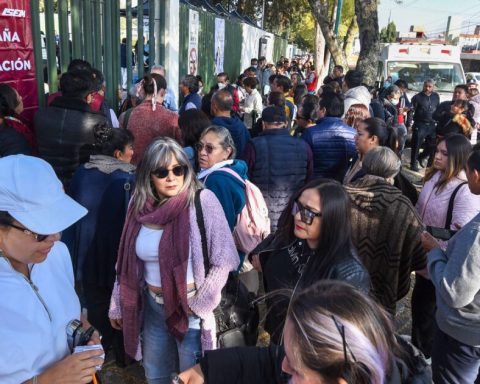The turbulent days of the Minister of Justice and Human Rights, Marcela Ríos, came to an end. This, because after a week in which all the darts were pointed at her due to the issue of presidential pardons, this Saturday she made her position available to President Gabriel Boric, who granted her release from office at the Palacio de La Moneda.
Following the news, the President stated that “because there were untidiness in the execution of my decision to grant pardons and also considering the need to strengthen the political management of the Ministry of Justice and Human Rights, I have decided to accept the resignation of Marcela Ríos Tobar to said portfolio”.
“When situations of these characteristics occur in politics, we must assume responsibilities. In his replacement I have decided to name the prominent lawyer Mr. Luis Cordero Vega, who will assume his duties in the coming days, since he is temporarily out of the country,” he added.
Likewise, he pointed out that “as a Government we have a responsibility that is of every day, to make complex decisions that as a whole are building our country and the place where we want to live and the society that we want to form. All those who have a role of high responsibility in My Government knows that when mistakes of this nature are made, political responsibilities must be assumed, as is being done in this case”.
During the afternoon of last Friday, the Head of State and the Minister of the Interior, Carolina Tohá, met to refine the departure of Ríos, who during the day met at the Palacio de La Moneda with the third candidate for National Government Prosecutor, the lawyer -and questioned- Ángel Valencia. At the exit of the instance, the Secretary of State did not want to give statements.
You may also be interested in:
The pardons were the straw that broke the camel’s back, but the situation of Minister Ríos had already been questioned since the first candidate for National Prosecutor who was rejected by the Senate, that of José Morales. Although the Upper House can reject a name proposed by the President, this situation had never occurred before, which meant a blow to Boric, the Minister of Segpres, Ana Lya Uriarte, and Ríos herself. The situation increased after the second failure, that of Marta Herrera.
For this reason, and to avoid a third failure, Boric, Ríos and company opted for Valencia, despite the fact that in his professional career, he assumed the defense of the former judge of the Caval case, Luis Barría –today formalized for sexual abuse– Y also assumed the defense of a child rapist. But, on the other hand, it was the name that generated the most agreement among the senators, both from the ruling party and from the opposition, so a third failure seemed less likely. “The country needs the third time to be the charm,” said Ríos, so that the ratification of Valencia would mean support for his management.
The carelessness on the issue of presidential pardons -with an official announcement that contained errors in the names- put her on the ledge, with criticism from parliamentarians and constitutional accusations announced by the opposition. Not even the management between the Executive and the opposition, to offer Valencia as National Prosecutor as a “bargaining currency” for the withdrawal of these accusatory libels was enough to lighten the load of criticism against Ríos. In this matter, she was also weakened because before President Boric appointed Valencia, Ríos pointed out his favoritism to Juan Agustín Meléndez, the current deputy National Prosecutor. But this week she had no political ground to defend his option. She, too, did not have this weight when President Boric telephoned the Supreme Court to request a new contest to make a quina from scratch.
Going back to the criticisms of the opposition, these had already come from before and that they had a certain degree of resentment, due to the words of Ríos on July 1, when he said that “the climate in the Senate has been very marked by the decisions of the Convention” and assured that “in some cases the behavior towards the (Government) ministers has been extremely impolite.” She also bothered them that she was not a lawyer but a political scientist, and that the tradition in said ministry was that its head be a lawyer.
Matías Meza-Lopehandía, President Boric’s chief of staff, resigns
At the departure of Marcela Ríos is added that of the Social Convergence lawyer and President Gabriel Boric’s chief of staff, Matías Meza-Lopehandía, one of the men closest to the President at the La Moneda Palace. At the moment, the name of his successor has not yet been announced.
Through a statement, the Government maintained that “in the same way, HE the President of the Republic has accepted the resignation of Matías Meza-Lopehandía in the post of Chief of Staff.”
The lawyer from the Catholic University and an expert in human rights and indigenous movements took office in March 2022, together with the arrival of the Government, and managed to carry out his duties for about 10 months.
His name began to take center stage due to the pardons granted by the President and, according to the Third, there is a version that the error in the list of those pardoned would have been his responsibility, since he had an active role in the process and advocated for the realization thereof.
Who is Luis Cordero Vega, the new Minister of Justice?
After the confirmation of the resignation of the now ex-minister Ríos, President Gabriel Boric confirmed that the one who will replace her will be the prominent lawyer Luis Cordero Vega, who is the husband of the current Chilean ambassador to Germany, Magdalena Atria.
Cordero Vega has a degree in Legal Sciences from the University of the Republic, a Master’s in Public Policy from the Faculty of Economics and Business (Universidad de Chile) and a PhD in Law from the University of Lleida, Spain.
To this is added that he is a professor of Administrative Law at the University of Chile and a prominent senior researcher at the Center for Regulation and Competition of the Faculty of Law of the aforementioned house of studies. According to a statement issued by the Presidency, Cordero “was working as a partner in the Ferrada Nehme law office, where he directed the Public Law and Government area.”
Cordero Vega was coordinator of the Environmental Institutional Reform, Law 20,417 that created the Ministry of the Environment and the environmental evaluation services, such as the SEA and the Superintendence of the Environment.
In 2011, he was a member of the Desormeaux Commission, a group in charge of reforming the financial supervision of the Ministry of Finance. Likewise, his participation as president of the group of experts for institutional reform in the stock market is added.













